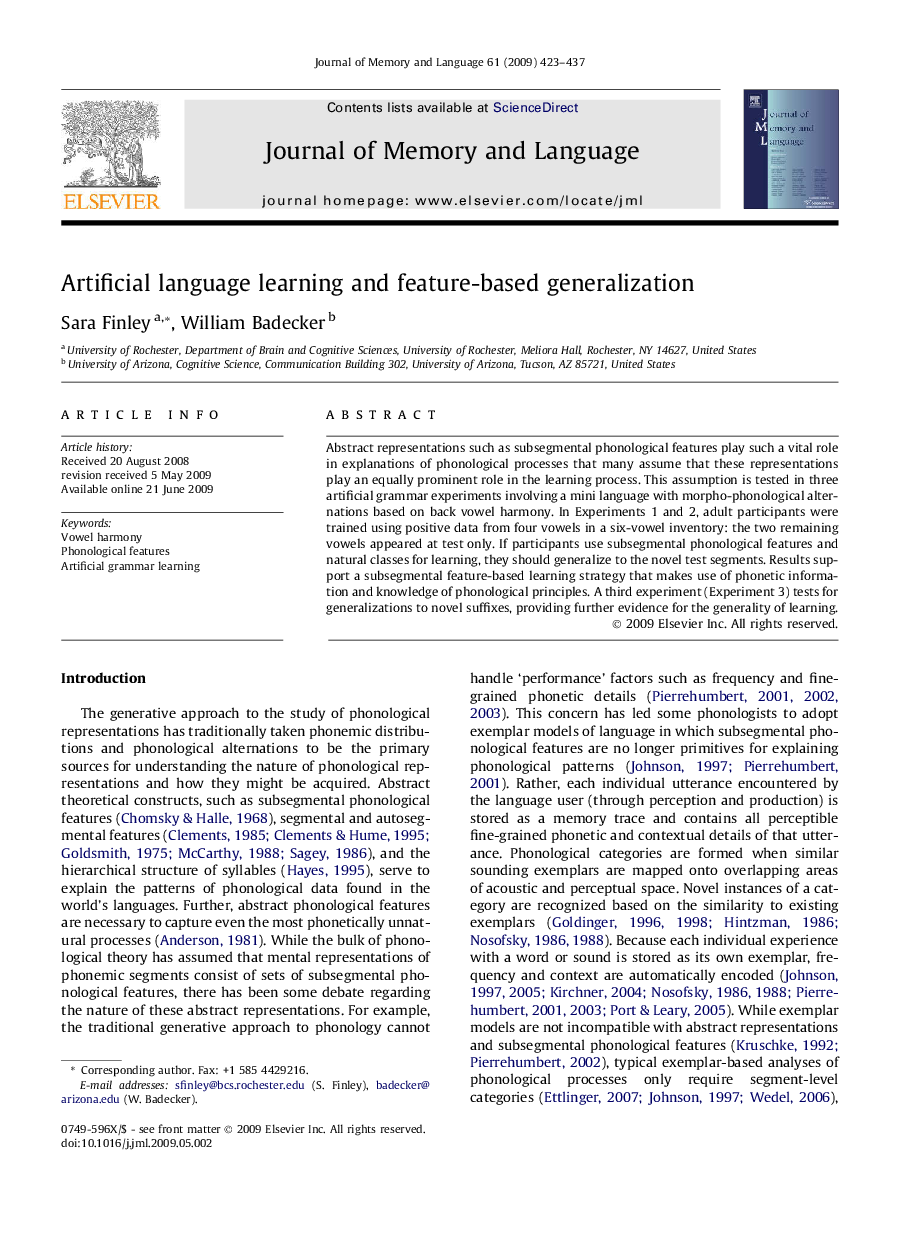| Article ID | Journal | Published Year | Pages | File Type |
|---|---|---|---|---|
| 932075 | Journal of Memory and Language | 2009 | 15 Pages |
Abstract representations such as subsegmental phonological features play such a vital role in explanations of phonological processes that many assume that these representations play an equally prominent role in the learning process. This assumption is tested in three artificial grammar experiments involving a mini language with morpho-phonological alternations based on back vowel harmony. In Experiments 1 and 2, adult participants were trained using positive data from four vowels in a six-vowel inventory: the two remaining vowels appeared at test only. If participants use subsegmental phonological features and natural classes for learning, they should generalize to the novel test segments. Results support a subsegmental feature-based learning strategy that makes use of phonetic information and knowledge of phonological principles. A third experiment (Experiment 3) tests for generalizations to novel suffixes, providing further evidence for the generality of learning.
